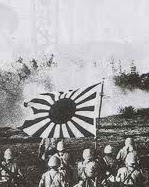Let us ask the most obvious questions first?
“Why did the West become so much richer than the rest?
 |
| Ferdinand Magellan |
This might be substantiated by McCusker & Menard in their book “The Economy of British America ” when they cited some reason why countries colonize:
” when they cited some reason why countries colonize:
1. To do things the home country can’t do well:
2. Different climate (Try growing sugar, indigo, tobacco, rice in Europe).
3. Low priced land/worker
- Lumber can potentially grow in Europe, but not when it’s all been cut down
- Land is scarce and therefore expensive in England. England can produce wheat, cattle, hogs, etc., but not as cheaply as in the new world.
 Colonization will favor the conqueror more the than colonized country in a way that the resources of that certain colony were exploited by the colonizers. Although it brought in an economic movement internally by the processing of our raw materials into commodities, the colonizing country are the ones largely benefiting from exports as well as heavy taxes imposed in the colony.
Colonization will favor the conqueror more the than colonized country in a way that the resources of that certain colony were exploited by the colonizers. Although it brought in an economic movement internally by the processing of our raw materials into commodities, the colonizing country are the ones largely benefiting from exports as well as heavy taxes imposed in the colony.
However, McCusker & Menard cited that some colonies could have had an opportunity for development from being colonized through the following reasons:
1. The colonies are basically doing the same thing as in the mother land.
2. The only real difference is that they have a frontier to which they can move.
3. Other than the expanding frontier, colonial economic development mirrors the mother land.
4. Factors internal to the colony drive development
Well, this could explain why other countries have become developed despite being colonized in the past. Our question lies now in the premise of who colonized whom and how were they colonized? However, the latter question could already have been answered. We were colonized for trade, and taxation and we submitted because they have the greatest weapon ever invented, religion.
So does the nature of the colonizer differ or does it depend on the colonized?
Could I just rephrase the question? How about “who is the best colonizer?
In an internet article in Slate magazine entitled “Master of the Island: Which Country is the Best Colonizer”, Joel Waldfogel cited a study by James Feyrer and Bruce Sacerdote, both of Dartmouth College. They considered studying a certain factor in history that could explain why some countries are rich and some are poor. This factor is the length of European colonization. The study made use of data from 80 tiny islands in the Atlantic, Pacific, and elsewhere which were once colonized by European explorers at a point in time.
Feyrer and Sacedote's key findings are that the longer one of the islands spent as a colony, the higher its present-day living standards and the lower its infant mortality rate. Each additional century of European colonization is associated with a 40 percent boost in income today and a reduction in infant mortality of 2.6 deaths per 1,000 births.
This data could somewhat be interesting but let’s try to look further into their findings because I seem to understand since time that my country was also once a colony. Let’s try to look for more clues.
 So, what did the Europeans do right? The authors conclude that there's no simple answer. The most plausible mechanisms include trade, education, and democratic government. When the study directly measures these factors, some of them help to explain income differences among islands—for example, the places that traded only basic agricultural products in colonial times now have lower living standards. But even after accounting for these concrete determinants, longer European colonization has some extra pro-growth effect. Exposure to European colonizers, it appears, benefits living standards for reasons apart from the direct effects of government, education, and markets.
So, what did the Europeans do right? The authors conclude that there's no simple answer. The most plausible mechanisms include trade, education, and democratic government. When the study directly measures these factors, some of them help to explain income differences among islands—for example, the places that traded only basic agricultural products in colonial times now have lower living standards. But even after accounting for these concrete determinants, longer European colonization has some extra pro-growth effect. Exposure to European colonizers, it appears, benefits living standards for reasons apart from the direct effects of government, education, and markets. |
| Library in UST |
 |
| James Cook |
Eureka! I think I finally got it. This may be the explanation why the Philippines is far off from other colonized countries. It practically made sense, we are actually colonized in the 1500’s, the pre-Enlightenment era, with a few inconsistencies of course because we are not colonized for religion but religion is their tool to colonize us. We could have thrown them off much better if the reason was purely trade and money rather than use religion as their weapon. It was a classic psychological warfare.
However, let us look further for more clues. If we could just see how other colonizers apart from Spain have fared as master of islands. I bet this could shed light into the matter.
The authors also compare the experiences of separate Pacific islands with eight different colonizers: the United States, Britain, Spain, the Netherlands, Portugal, Japan, Germany, and France. Their verdict is that the islands that are best off, in terms of income growth, are the ones that were colonized by the United States—as in Guam and Puerto Rico. Next best is time spent as a Dutch, British, or French colony. At the bottom are the countries colonized by the Spanish and especially the Portuguese.
My God! This made me the greatest detective! At least for a while. This has really made sense, a whole lot of sense (Spain, the worst colonizer?). The United States is no. 1 huh! Well wasn’t the Philippines colonized by the U.S.? My God again! What am I trying to get into? Let me look more into my readings here.
Taufik Abdullah in his scientific paper entitled “Asia and European Colonialism” which was published in the Asia Europe Journal has the following explanation. “The clearly marked boundaries of colonial territories and the consolidation of power in their respective areas of control also meant that for the first time in their respective histories the colonized countries experienced administrative unification. The Spaniards might fail to unify the whole islands of the Philippines under one administration, but the Americans, who emerged as the victors in the American-Spanish war, managed to accomplish, even for a short period, what the Spaniards failed to accomplish. The failure of the Spaniards and the short rule of the U.S. was one of the causes for the slow process of nation building in the Philippines”.
 |
| Filipinos captured by American Soldiers |
 However, I believe the Americans could have stayed longer if not for that damn World War which made us attractive to the Japanese (let’s face it, we have always been attractive to foreign powers, two words: natural resources). Furthermore, there are evidenced controversies that Pearl Harbor was really a conspired event to legitimize the U.S. entry to the World War but that’s another story let’s deal with colonization’s effect on us for now. So what could have led us in the wrong rhythm in the music of development? Let’s try to look at other explanations.
However, I believe the Americans could have stayed longer if not for that damn World War which made us attractive to the Japanese (let’s face it, we have always been attractive to foreign powers, two words: natural resources). Furthermore, there are evidenced controversies that Pearl Harbor was really a conspired event to legitimize the U.S. entry to the World War but that’s another story let’s deal with colonization’s effect on us for now. So what could have led us in the wrong rhythm in the music of development? Let’s try to look at other explanations. |
| Seoul, South Korea |
 |
| After the Second World War |
 |
| Luis Taruc (Huk Leader) |
Conclusion
 |
| The Real Heroes |







0 comments:
Post a Comment